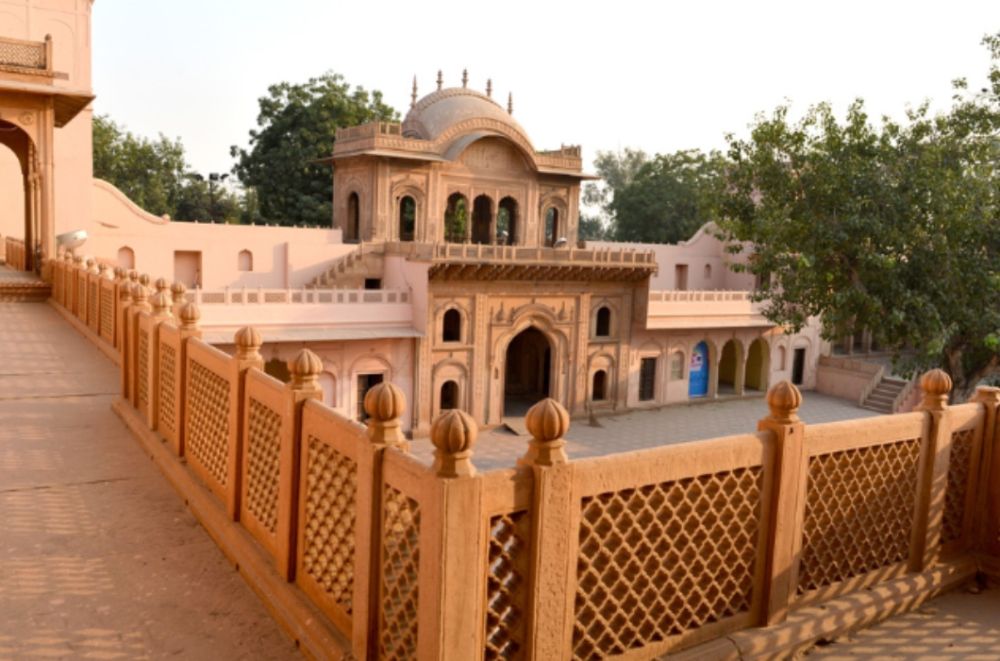

The Raja Nahar Singh Palace, also known as the Ballabgarh Fort Palace, stands as a testament to the rich history and cultural heritage of Faridabad, Haryana, India. The palace dates back to the 18th century and was built by Raja Nahar Singh, the ruler of Ballabgarh. This historical edifice is a significant example of North Indian architecture, characterized by its ornate design, grand courtyards, and impressive gateways.
Raja Nahar Singh played a pivotal role in the Indian Rebellion of 1857 against the British, and his palace has since become a symbol of resistance. Although the palace had undergone various phases of decline, its tourism history began to flourish after the Government of Haryana recognized the importance of preserving this monumental structure as a cultural and historic site.
In recent years, the palace has seen considerable restoration efforts. These have been aimed at reviving the palace’s former glory and making it accessible to tourists. The local government and heritage conservationists have worked tirelessly to restore the palace's exquisite frescoes and intricate detailing, empowering it to be not only a site of historical interest but a significant stop for cultural tourism in Haryana.
Today, Raja Nahar Singh Palace stands as a proud monument attracting tourists from all over the country and abroad. It serves as a venue for many cultural events and festivals, showcasing the area's local traditions and arts. The palace hosts an annual fair which includes performances by folk artists, exhibitions of local crafts, and other activities that highlight the regional heritage.
Heritage walks and guided tours are popular ways for tourists to explore the palace, with narratives focusing on the history of Raja Nahar Singh, the palace's architecture, and its role in the struggle for India's independence. As a part of the tourism trend, the Palace authorities have also introduced light and sound shows that re-enact important events from the palace's history, providing an immersive experience for visitors.
Eco-tourism has become an integral aspect of modern travel preferences, and the areas surrounding the palace are being developed with this in mind. There is an emphasis on sustainable tourism, with initiatives to maintain the palace's natural surroundings and create spaces where tourists can engage with the environment responsibly.
Looking to the future, the Raja Nahar Singh Palace is poised to become a center for heritage tourism in Haryana. With ongoing efforts towards preservation and the introduction of tourist-friendly amenities, this historic site will continue to offer a meaningful journey through India's rich past while contributing to the local economy through tourism.